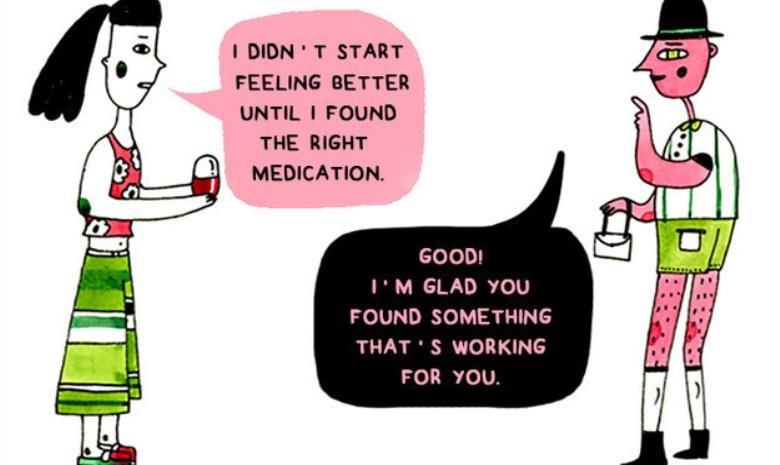
How we talk about mental health is key to increased workplace productivity (and also really just the decent thing to do).
Dispelling workplace stigmas attached to mental illnesses is key to not only improving the health of mentally ill employees, but also to improving the bottom line of local businesses.
We interviewed Katherine Eyal, facilitator of a support group for students at UCT who have mental illnesses, who explained how the use of certain terminology only serves to increase stigmas and negative attitudes, and can also cause offence to those who have a mental illness. This discrimination also discourages people from seeking care, because they're worried about being seen as 'crazy'.
Those who want to facilitate the acceptance of mentally ill workers and encourage others to disclose their diagnosis must strive to banish the stigma attached to mental health issues.
Thu-Huong Ha, Context Editor at TED, suggests the following approach:
· Avoid correlations between crime and mental illness.
While a mental illness may “deprive persons of the capacity to control their conduct or to appreciate the unlawfulness of their conduct”, not every mentally ill individual is capable of crime.
· But do correlate more between mental illness and suicide.
In South Africa 60% of people who commit suicide are depressed. This is a significant number and cannot be overlooked.
· Avoid words like “psycho”, “mental,” “schizo,” “crazy,” or “loonie”.
These stigmatising words do nothing to improve the image of those who struggle with mental illness, and instead perpetuate negative perceptions.
· Self-advocacy can be very powerful.
If employees are comfortable talking about their own experiences with mental health, invite them to share this with other employees who may need to hear it.
· Don't define a person by his/her mental illnesses.
Talk about mental illness the way you would talk about other medical health problems. Just like a medical illness does not define a person’s identity, a mental illness does not define a person’s competence. Focus on the person, not the condition. For example, say “She is a person with schizophrenia” and not “She is schizophrenic”.
Carmen Williams, writer at Women24 and PTSD sufferer, stresses that managers and co-workers need to be aware that some topics might cause their colleagues extreme stress and so to avoid certain terms or phrases in their presence. “In the media, trigger warnings help shield those who need protection from the horrors that are only too real for them and are haunted by traumatic memories” she wrote in a 2015 article.
While trigger warnings are not always possible in the work environment, by avoiding flippant clichés and throwaway comments you can make a colleagues day much easier to endure. Next time you want to say “That’s the second time I’ve tidied my desk today - I’m just so OCD!” or “I can’t decide which sandwich I want for lunch today – I must be bi-polar” or even “If I can’t have a cup of coffee right now, I’ll kill myself!” …don’t.
Carmen says that self-awareness is key to getting this right. She says that you must be ready to call yourself out when you realise you've over-stepped, and be prepared to do the same for others. She tells us this is called being 'woke', as in being someone who thinks for themselves, who sees the ways in which discrimination affects us and those around us.
Katherine Eyal also told us about 'ableism', a form of discrimination or social prejudice against people with disabilities, where people are defined by their disabilities, and viewed as inferior to the non disabled population. Examples of ableist language include using the term crazy to describe something incredible or ridiculous, or schizophrenic to mean "erratic" or "unpredictable".
It is worth noting that workers with mental illness can file complaints of harassment due to inappropriate language used against them in the workplace.
Additional resources to assist in creating considerate conversations can be found here: Mind Your Language!
Written by Elizabeth Mamacos: Elizabeth currently serves as Editor at Careers24. She oversees a team of writers who specialise in career advice, and has a long history of both digital and print journalism. Elizabeth spends her free time studying and running after her toddler. If you would like to get in touch, email her at editor@careers24.com.